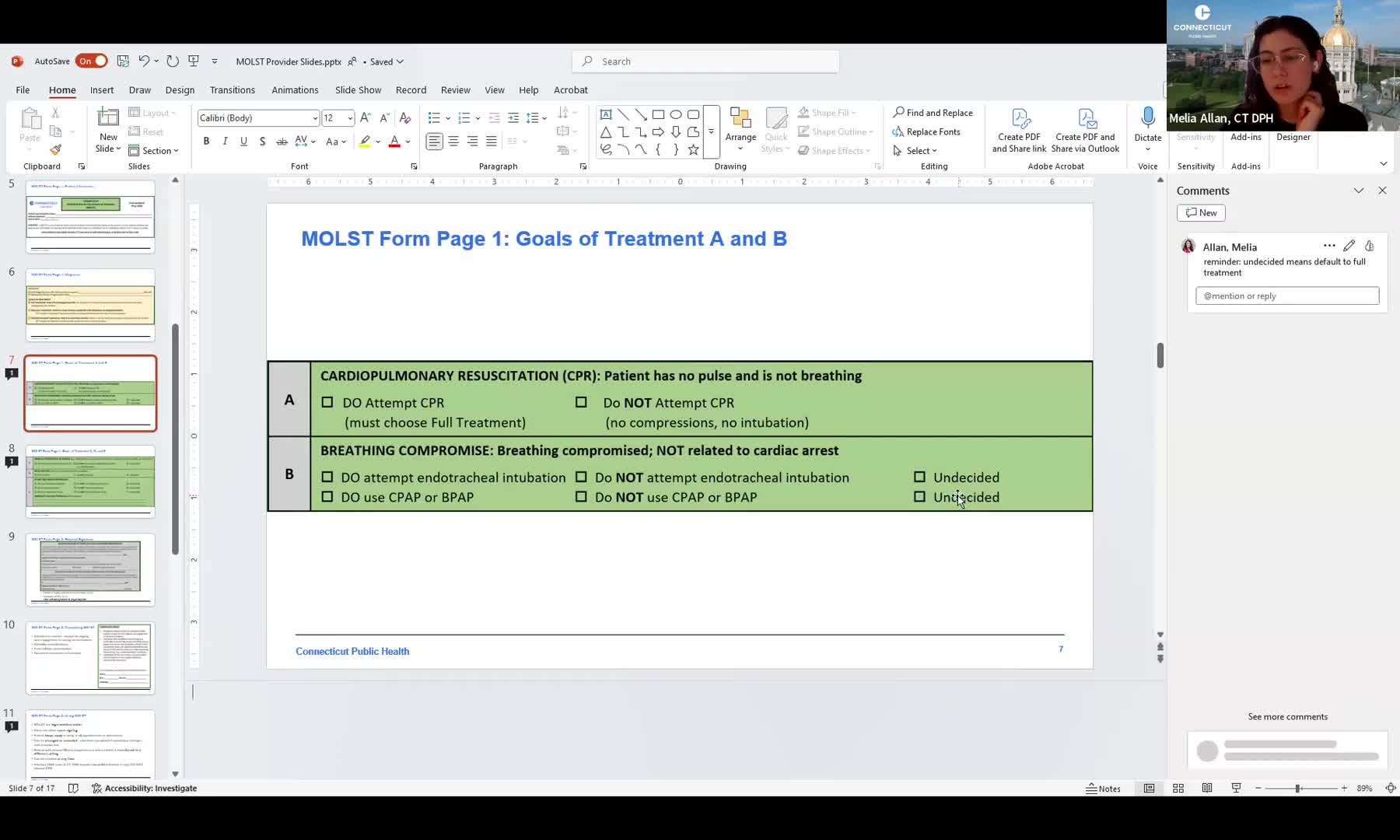Review of MOLST Form Highlights Patient Rights and Care Flexibility
May 14, 2025 | Department of Public Health, Departments and Agencies, Organizations, Executive, Connecticut
Thanks to Scribe from Workplace AI , all articles about Connecticut are free for you to enjoy throughout 2025!

This article was created by AI using a video recording of the meeting. It summarizes the key points discussed, but for full details and context, please refer to the video of the full meeting. Link to Full Meeting
Members of the subgroup highlighted the need for clear communication regarding the implications of being undecided, reinforcing that patients should be informed about how their choices affect their care. The group agreed that the language used in the MOLST form should be straightforward and accessible, ensuring that patients and their families can easily comprehend their options.
Another significant topic was the removal of the witness signature requirement on the MOLST form. The subgroup discussed how this change reflects evolving practices and aims to reduce barriers for patients. The group agreed that the form should clearly state that a witness signature is no longer required, which could help streamline the process for patients and providers alike.
The conversation also touched on the need for sensitivity in language, particularly regarding individuals with disabilities. The subgroup proposed revisions to ensure that the MOLST form conveys that individuals with disabilities have the same legal and moral rights to high-quality end-of-life care as anyone else. This change is intended to promote inclusivity and respect for all patients.
As the meeting progressed, members expressed the importance of ensuring that the MOLST form remains a living document that reflects the patient's current wishes, especially during transitions between different healthcare settings. The subgroup discussed how to phrase recommendations for periodic reviews of the MOLST form, emphasizing that these reviews should not create barriers to care but rather ensure that patient preferences are honored.
In conclusion, the discussions from the MOLST Training Subgroup meeting reflect a commitment to improving patient care through clearer communication and more inclusive practices. The proposed changes to the MOLST form aim to empower patients, ensuring their voices are heard and respected in critical healthcare decisions. As these updates are finalized, they will play a crucial role in shaping how end-of-life care is approached in Connecticut, ultimately benefiting the community at large.
Converted from MOLST Training Subgroup, May 13, 2025 meeting on May 14, 2025
Link to Full Meeting
Comments
View full meeting
This article is based on a recent meeting—watch the full video and explore the complete transcript for deeper insights into the discussion.
View full meeting